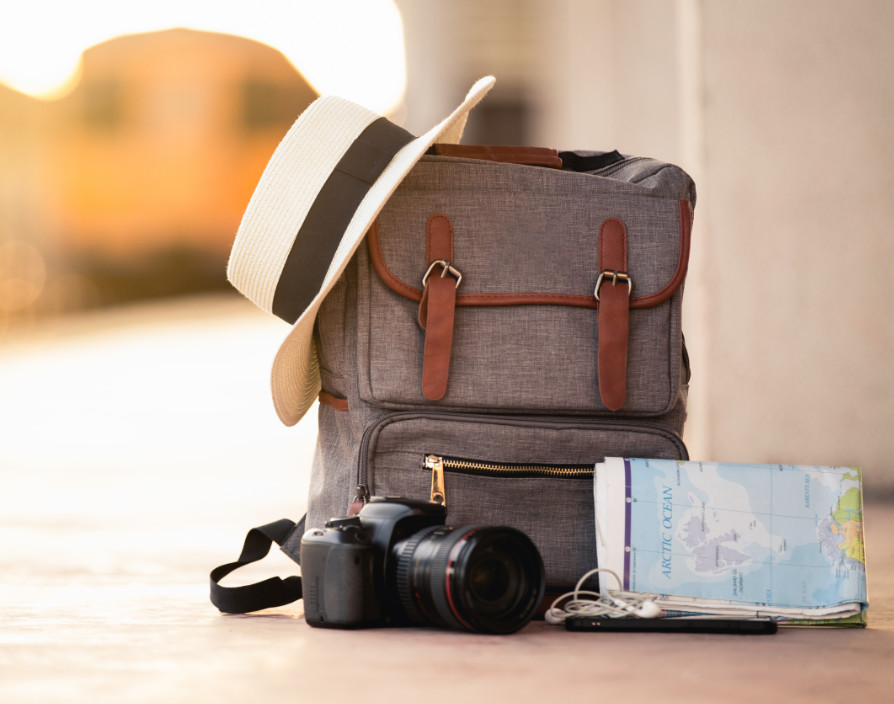The pandemic has hit some sectors harder, longer. While many companies are back to something approaching normal, the travel sector remains in the eye of the storm, long haul travel in particular. I spoke to Sam Clark of Experience Travel Group and Richard Frampton of Hurlingham Travel to find out how the industry has survived and what they see for the future.
Experience Travel Group offers off-the-beaten-track experiences, for the curious traveller, in South and South East Asia and the Middle East. Their revenue dropped from £7m in 2019-20 to 500k, and co-founder, Sam, says they were lucky to get that. The pandemic’s start saw them having to refund clients in full, while insurance companies were yet to pay out, nor the airlines refund early on. At the same time, they were frantically bringing back 100 groups of holidaymakers from diverse places and moving to work from home. While some of their team had to be furloughed, many were retained to cope with cancellations.
Hurlingham Travel concentrates on the luxury market in the UK, Europe, and Long-Haul. Richard remembers the first five months of this year when everything was closed which was even worse than the stopping and starting last year. Bookings made then have been cancelled multi-times since. Christmas was the worst when cancellations came only a week before. Some of their original bookings were postponed to 2021 yet still have not managed to get away, and some cancellations of Autumn’s bookings are already in process. The continued uncertainty means that some people think booking a holiday would not be worth it. For others, changing rules mean the old, pre-holiday excitement cannot happen.
Richard told me he had seen other travel companies on Facebook saying it is just too stressful to take bookings, knowing the probable outcomes. He would prefer they book with him if they are determined enough to be booking. Hurlingham’s clientele from 19 years in the business mostly still want to travel, despite the postponements. The UK market got them through, and Hurlingham had the advantage of always being home working, so no overheads. Sam at Experience Travel Group looked at pivoting to the UK, but his company’s knowledge and assets are all in their established destinations. He says about 75% of their customers postponed rather than cancelled, and that phenomenally loyal and supportive customer base has kept them going.
Sam saw interest in bookings for long-haul for last Autumn because no one knew how long this would last. By February this year, most long-haul travel had been postponed to 2022. Then came the government’s traffic light system, and everything died. Richard at Hurlingham Travel also has more long-haul bookings for next year and last-minute ones for this. He is watching some large long-haul Christmas and New Year bookings with trepidation. For the people at Hurlingham who are all self-employed, they get paid when people go on holiday. On top of that, when the self-employed furlough payments were re-assessed over the last four years rather than two, the total included Hurlingham’s best-ever year and put Richard outside the band to receive any help at all.
Both Sam and Richard are surprisingly positive. Sam describes how hard they continue to engage their audience with online events and new product lines and ease the pain points of travel in the COVID era. He says that if they get through this, they will be a far stronger business. It has made them change to assess what they do best and why their audience likes and values them, and that has been incredibly constructive. The pandemic has shown us all we never know what to expect. They will now only be doing what the customers love and not waste any time on things people don’t value. Richard at Hurlingham Travel describes himself as lucky because so many great and viable travel businesses have gone out of business. Richard says the industry is devastated. Many of his friends from the industry now work in supermarkets and as delivery drivers.
I asked them what has hurt the industry the most and what they would like to see going forward. Richard says the uncertainty factor is enormous. People ring him for advice all the time when no one tells the travel industry what is going on before the general public. The amber part of the travel lights, he feels, where a particular disaster, heightening uncertainty. Better to have simply red and green. Richard also thinks that the high costs of COVID testing, compared to other countries, also puts people off booking. He would have preferred them to remain government-run and free from exposure to profiteering. Sam agrees that confidence is a massive part of the problem. He hopes for bookings to rebound this Autumn, but even that wouldn’t solve the cash flow problem as they still need to pay for marketing. Neither of them will see income till actual travel happens again. Mid next year is hopeful for long-haul, but normality will take longer.
Travel companies are sandwiched in the middle, unable to work for reasons outside their control, yet now expected to start paying back their emergency loans. Many are using capital to do so. Richard would like to see the furloughs extended for travel, and Sam thinks they should get re-opening help as per the French system. Neither expects that support to happen. Sam points out an immense lack of logic in this. If and when travel companies go bankrupt, ATOL has to pay the consumer. ATOL is government-backed, already in debt through Thomas Cook, and would just slide further into the red. It makes no financial sense not to help the travel industry.
Most of the government’s £7b has gone to aviation, not to travel companies like Hurlingham Travel and Experience Travel Group. Yet, as Sam points out, Britain’s travel companies are an asset to the UK. We are considered the gold standard of travel, leaders in sustainability, have contributed vast amounts in taxes, brought in foreign currency as exporters, and been highly profitable for ten years and more. We are talking about companies that genuinely fly the flag for Britain ‘ surely the government needs to offer more help and more consistency in the future.
“
Share via:








































